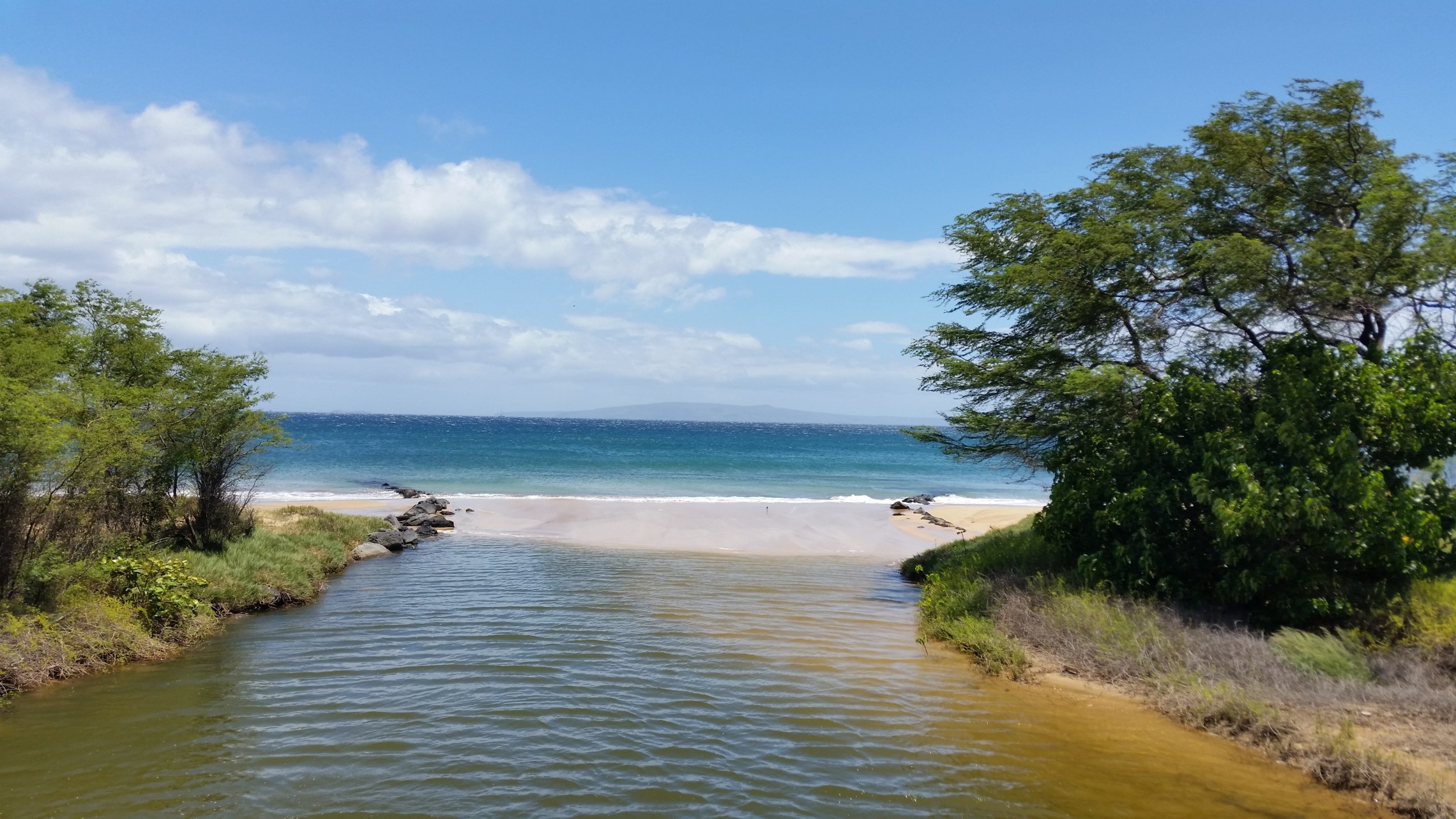 |
 |
Maui Sewage Case Makes a Supreme Court Splash
|
Courthouse News Service
November 6, 2019
By Jack Rodgers

Photo by CHRIS MARSHALL/Courthouse News Service
WASHINGTON (CN) — On the hook for polluting the Pacific Ocean with millions of gallons of treated sewage every day, a lawyer for Hawaii's Maui County told the Supreme Court on Wednesday that a ruling against it will open another set of floodgates.
"There are more than 500,000 similar underground injection wells in the country and nearly 6,000 in Hawaii alone," Elbert Lin, of the firm Hunton Andrews Kurth, said this morning at oral arguments in Washington.
Lin said the lower courts improperly expanded the definition in the Clean Water Act of what constitutes a point source, meaning a source that delivers pollutants into navigable waters. For decades, the government has not required permitting for underground injection wells, though leaks from these sources eventually flow into the Pacific.
Lin insisted that the facilities like Maui's sewage center in Lahaina are already regulated at the local and state level, and that it is the land, not the well, that should be considered the conveyance of the pollutant.
But Justice Stephen Breyer told the county's lawyer that his argument would create "a road map for people who want to avoid the point-source regulation."
"All we do is we just cut off the pipes or whatever, 5 feet from the ocean or 5 feet from the navigable stream," Breyer said. "What I'm looking for in this case is what's a standard that will prevent evasion. I don't see how yours prevents evasion."
Arguing for the environmental groups Hawaii Wildlife Fund, Sierra Club-Maui Group, Surfrider Foundation, and West Maui Preservation Association, Earthjustice attorney David Henkin took the analogy a step farther.
"When you buy groceries, you say they came from the store, not from your car, even though that's the last place they were before they entered your house," Henkin said. "Likewise, the millions of gallons of treated sewage entering the Pacific Ocean off West Maui every day come from petitioner's wells under any understanding of the term."
Deputy U.S. Solicitor General Malcolm Stewart meanwhile offered his own metaphor, arguing in support of Maui.
"If at home I pour whiskey from a bottle into a flask, and then I bring the flask to a party at a different location, and I pour whiskey into the punchbowl there, nobody would say that I had added whiskey to the punch from the bottle," Stewart said.
Justice Elena Kagan asked Stewart if his argument included the regulation of a "point source" like a pipe, discharging pollutants onto land. Stewart conceded this hypothetical would require a regulatory permit — but if a pipe is placed underground, he continued, no permit would be required because groundwater does not qualify as a "point source" under the law.
Kagan said this type of argument was the type of road map Breyer had previously suggested that organizations would use to avoid Clean Water Act regulations.
"But, here, the question is the pollution coming from a point source, an undisputed point source, and going into the navigable water, and the only question is whether the fact that there's some kind of intermediary between the two," Kagan said. "The point of this regulation is to go at the source, and the source is still a point source emitting pollutants."
Earlier in the hearing, Kagan defended the statute as firm and well-defined.
"It requires a permit when there's any addition of any pollutants to navigable waters from any point source," she said. "So, here, it's from a point source, which is the well, and it's to navigable waters, which is the ocean, and it's an addition. How does this statute not apply?"
Hannah Bernard, executive director and co-founder of Hawaii Wildlife Fund, said she hoped the Supreme Court would rule in her group's favor and uphold the intent of the Clean Water Act.
"After 12 years of fruitless negotiations and filing of this lawsuit, we are dismayed that our case was elevated to this level by Maui County's mayor, since it defies the will of the people of Maui and the Maui County Council to protect our reefs," Bernard said.
Original article URL:
https://www.courthousenews.com/maui-sewage-case-makes-a-supreme-court-splash/
BACK TO WMPA
HOME PAGE
|


